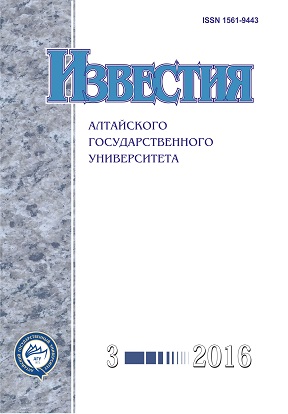Discussing the Constitutional Right of the Accused (Women and Minors) to the Jury Trial
Abstract
The article presents a review of publications on the realization of the constitutional rights of the accused to the trial by the court with the jury participation. The conclusion is made about the need for further research with regard to legal positions of the constitutional Court of the Russian Federation. The article considers the jurisdiction of criminal cases to the jury on a personal basis. The author provides the data on the reduction of the jury cases in the court jurisdiction. In accordance with article 31 of the Code of Criminal Procedure of the RF, accused minors and women could not file a motion for the jury trial. In addition, these criminal cases must be transferred for consideration from the regional court to the district court. It violates the constitutional principle of equality of citizens before the law and the courts. The analyses is given to the decisions of the Constitutional Court of the RF about jurisdiction of criminal cases to the Grand jury. The position of the Constitutional Court of the RF on this issue is contradictory. The court declared the deprivation of the minors Deprivation of the minors of the right to the jury trial was declared consistent with Constitution of the RF by the Constitutional Court of the RF while deprivation of women of the right to the jury trial was declared inconsistent with the Constitution of the RF. The article formulates a proposal for the appropriate amendments in the Code of Criminal Procedure of the RF.DOI 10.14258/izvasu(2016)3-12
Downloads
Metrics
References
Борисова Е.А. Апелляция в гражданском процессе. - М., 2000.
Свод законов Российской империи. Т. 16. Ч. 1 : Судебные уставы. - СПб., 1892.
Фойницкий И.Я. Курс уголовного судопроизводства. Т. 2. - СПб., 1996.
Мухин И.И. Кассационное обжалование, опротестование и пересмотр приговоров. - М., 1956.
Динер А.А. Становление и развитие апелляционного производства в российском уголовном процессе : дис.. канд. юрид. наук. - Барнаул, 2004.
Шинелева Т. Ревизионный порядок: за и против // Законность. - 2003. - № 5.
Ворожцов С. Принципы кассации по новому УПК РФ // Российская юстиция. - 2002. - № 12.
Дикарев И.С. Аполлогия ревизии в уголовном процессе // Российская юстиция. - 2012. - № 11.
Ковтун Н.Н., Мазина Н.Н. Апелляционная проверка в уголовном судопроизводстве России: новации закона и уголовно-процессуальной доктрины // Российская юстиция. - 2014. - № 7.
Аверин А., Кудрявцева А., Смирнов В. Проверка и исследование доказательств в суде апелляционной инстанции // Уголовное право. - 2012. - № 6.
Izvestiya of Altai State University is a golden publisher, as we allow self-archiving, but most importantly we are fully transparent about your rights.
Authors may present and discuss their findings ahead of publication: at biological or scientific conferences, on preprint servers, in public databases, and in blogs, wikis, tweets, and other informal communication channels.
Izvestiya of Altai State University allows authors to deposit manuscripts (currently under review or those for intended submission to Izvestiya of Altai State University) in non-commercial, pre-print servers such as ArXiv.
Authors who publish with this journal agree to the following terms:
- Authors retain copyright and grant the journal right of first publication with the work simultaneously licensed under a Creative Commons Attribution License (CC BY 4.0) that allows others to share the work with an acknowledgement of the work's authorship and initial publication in this journal.
- Authors are able to enter into separate, additional contractual arrangements for the non-exclusive distribution of the journal's published version of the work (e.g., post it to an institutional repository or publish it in a book), with an acknowledgement of its initial publication in this journal.
- Authors are permitted and encouraged to post their work online (e.g., in institutional repositories or on their website) prior to and during the submission process, as it can lead to productive exchanges, as well as earlier and greater citation of published work (See The Effect of Open Access).








